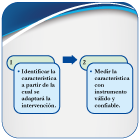Intervenciones adaptadas en personas con enfermedad cardiovascular: hacia un abordaje de enfermería para el cuidado individualizado
DOI:
https://doi.org/10.15649/cuidarte.v10i3.947Palabras clave:
Enfermedades Cardiovasculares, Investigación en Enfermería Clínica, Investigación sobre la Eficacia ComparativaResumen
A nivel mundial, las enfermedades cardiovasculares (ECV) constituyen la primera causa de morbimortalidad, lo que genera pérdida de años de vida productivos, discapacidad y muerte prematura, además de los costos sociales y para los sistemas de salud derivados de su atención1. Para el adecuado control de los factores de riesgo y el manejo de las ECV, se requiere que la persona modifique su estilo de vida, asuma hábitos saludables y se adhiera al tratamiento farmacológico. En este contexto, resulta indispensable no solamente lograr la participación activa del paciente en el mantenimiento de su propia salud2, sino también que los profesionales de la salud reconozcan al individuo como un ser activo, con habilidades para gestionar su salud, capaz de discernir y tomar decisiones dirigidas al logro de los objetivos terapéuticos.
Referencias
Benjamin E, Muntner P, Alonso A, Birrencourt M, Callaway C, Carson A, et al. Heart Disease and Stroke Statistics-2019 Update: A Report From the American Heart Association. Circulation. 2019;139:e56-528. https://doi.org/10.1161/CIR.0000000000000659
Al-Ganmi AH, Perry L, Gholizadeh L, Alotaibi AM. Cardiovascular medication adherence among patients with cardiac disease: a systematic review. J Adv Nurs. 2016;72(12):3001-14. https://doi.org/10.1111/jan.13062
Alberto L. Formación para la ciencia: una reflexión sobre los desafíos de la investigación en enfermería en la región de Latinoamérica. Rev Cuid. 2014;5(2):713-6. https://doi.org/10.15649/cuidarte.v5i2.128
Salmond SW, Echevarria M. Healthcare Transformation and Changing Roles for Nursing. Orthop Nurs. 2017;36(1):12-25. https://doi.org/10.1097/NOR.0000000000000308
Wight D, Wimbush E, Jepson R, Doi L. Six steps in quality intervention development (6SQuID). J Epidemiol Community Health. 2016;70(5):520-5. http://dx.doi.org/10.1136/jech-2015-205952
Moyle W, Rickard C, Chambers S, Chaboyer W. The Partnering with Patients Model of Nursing Interventions: A First Step to a Practice Theory. Healthcare. 2015;3(2):252-62. https://doi.org/10.3390/healthcare3020252
Mannion R, Exworthy M. (Re) Making the Procrustean Bed? Standardization and Customization as Competing Logics in Healthcare. Int J Heal Policy Manag. 2017;6(6):301-4. http://dx.doi.org/10.15171/ijhpm.2017.35
Wu TY, Lin C. Developing and Evaluating an Individually Tailored Intervention to Increase Mammography Adherence Among Chinese American Women. Cancer Nurs. 2015;38(1):40-9. https://doi.org/10.1097/NCC.0000000000000126
Storm V, Dörenkämper J, Reinwand DA, Wienert J, De Vries H, Lippke S. Effectiveness of a Web-Based Computer-Tailored Multiple-Lifestyle Intervention for People Interested in Reducing their Cardiovascular Risk: A Randomized Controlled Trial. J Med Internet Res. 2016;18(4):e78. https://doi.org/10.2196/jmir.5147
Sidani S, Braden CJ. Tailored Intervention. En: Design, Evaluation, and Translation of Nursing Interventions. New Jersey: Wiley-Blackwell; 2011. p. 74–82.

Publicado
Cómo citar
Descargas
Número
Sección
Licencia
Journal Cuidarte, scientific publication of open access, is licensed under a Creative Commons Attribution (CC BY-NC), which permits use, distribution and reproduction in any medium, provided the original work is properly cited and is not used for commercial purposes.
Any other form of use such as reproduction, transformation, public communication or distribution, for profit, requires the prior authorization of the University of Santander UDES.
The names and e-mail addresses entered in the Journal Cuidarte will be used exclusively for the purposes stated by this magazine and will not be available for any other purpose or other person.
The articles published in the Journal Cuidarte represent the criteria of their authors and do not necessarily constitute the official opinion of the University of Santander UDES.




